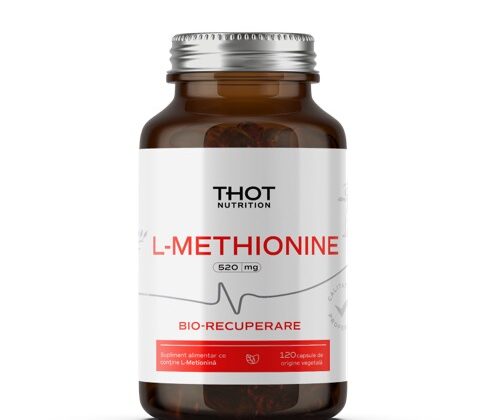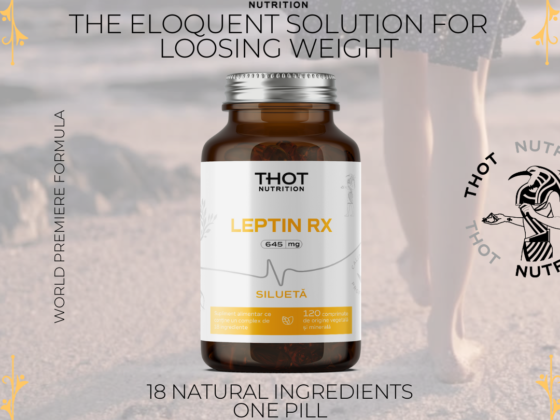Now we know that this “something” is called L-Leucine,
L-Leucine is the master of essential amino acids(EAAs), the key to muscle recovery, health, longevity and body protein synthesis.
I invite you to read this article in order to understand almost all there is to know about L-Leucine and its functions, benefits and uses. Enjoy!
Table of Contents
DISCLAIMER AND COPYRIGH – Thot Nutrition S.R.L.
Thot Nutrition S.R.L – Copyright – 2021. All rights reserved. No part of this information may be reproduced, stored in a retrieval system, or transmitted in any form or by any means, electronic, mechanical, photocopying, recording or otherwise without the prior written permission of the authors. The authors do not claim or guarantee any physical, emotional, mental, spiritual or financial results. All information provided by the authors is for general education purposes. The information in this document is not a substitute for a specialist medical certificate.
WARNING AND DISCLAIMER. The information provided and the products mentioned or provided by this document / site ( www.thotnutrition.com ) are not intended to diagnose, treat, cure or prevent any disease or condition. The information provided by this website and by the materials published on this site is not a substitute for a medical consultation or for a medical advice of any kind. We certify that there is a possibility that the information provided by this document / site or certain information in the included pages or documents may be medically incorrect.
By using this information, or by reading it, the user understands and accepts that the entire responsibility belongs to the user in full, exonerating from any legal responsibility the Thot Nutrition S.R.L team, www.thotnutrition.com , shareholders, site owners, employees, partners, collaborators and suppliers mentioned herein or who provided the information or services mentioned in the submitted documents / site, including the incorrect information provided through negligence. The use of the information and techniques described in this document / site is entirely at your own risk. If you do not agree with this warning and disclaimer, please do not read further and delete any document downloaded from www.thotnutrition.com
1 Introduction and general information about L-Leucine
L-Leucine may be the most important of all the 9 essential amino acids (EAAs). This amino acid, a branched-chained amino acid (BCAA) is the most important one in muscle protein synthesis, but has many other essential roles in cell metabolism. All of these roles and pathways will be presented in detail. But first, let’s see what are Essential Amino Acids?
1.1 Essential Amino Acids in Longevity
1.1.1 Essential Amino Acids
- Amino acids are the building blocks of life – they are the ones the body uses to build up proteins
- There are 20 amino acids in nature, of which 9 are essential amino acids (they must be supplemented from food, as the human body cannot synthesize them): L-valine, L-Leucine, L-isoleucine, L-tryptophan, L-phenylalanine, L-methionine, L-lysine, L-threonine, L-histidine
- Amino acids and enzymes are the key supplements that underlie the optimal functioning of protein metabolism. This is the indispensable team for the human body performance.
- The quest for the perfect formula led to the best EAAs of all times: THOT AMINOS – 39% L-Leucine.
- Read more by accessing the main article: Building blocks of life and nutrition – What are essential amino acids?
1.1.2 Muscle mass in Health and Longevity
As far as proteins and amino acids go, science seems to be at the very beginning in discovering amino acids and their importance, roles and pathways in the human body. This is good. It appears like someone has finally spotted the tip of the iceberg regarding amino acids and protein metabolism and willing to dig deeper in order to better understand how deep, how wide and how complex this domain actually is.

Recent studies have confirmed that muscle mass and muscle quality has a big impact on the metabolic age. It is only natural to study and to look for the best solutions available nowadays in order to build the highest quality muscle that can be built: the purest, the smartest and the most efficient. Therefore, the first element to look at when it comes to muscle is protein. More specifically – amino acids.
It is not protein that we need, it is amino acids: essential, bio-available, orthomolecular (left-packed).
1.2 L-Leucine and BCAAs in building muscle
1.2.1 BCAAs in building muscle
- For many years BCAAs were the most used protein for building muscle mass[1].
- ”BCAAs” stands for ”Branched Chained Amino Acids”.
- This means that the molecular structure of these type of amino acids is not linear, but it is a branched structure. There are three BCAAs: Leucine, Isoleucine and Valine.
- Although BCAAs are well-known for efficiently building muscle mass, their use and efficacy is found to be highly inferior to a complete formula of Essential Amino Acids (EAAs)
- Moreover, of the 3 BCAAs, L-Leucine is the one which actually has a role in protein synthesis, the other two not having a real contribution to the process.
1.2.2 EFSA (European Food Safety Administration) health claims for BCAAs
According to EFSA, BCAAs gained some important health claims[2] overtime. The most important ones are as follows:
- BCAAs help in growth and maintenance of muscle mass
- attenuation of the decline in muscle power output following high-altitude exercise
- faster recovery from muscle fatigue after exercise
- improved mental performance after exercise
- reduction in perceived exertion during exercise
- maintenance of a healthy immune system
2 What is L-Leucine and how it improves our body?
2.1 L-Leucine is a very important ESSENTIAL amino acid

- L-Leucine cannot be produced by the body and must be obtained through diet.
- L-Leucine is a BCAA (branch chained amino acid)
- It is found in a variety of foods, including meat, fish, beans, and nuts.
- Although it is the “superstar” of the essential amino acids (EAAs), it is recommended to combine L-Leucine with the rest of them: L-valine, L-isoleucine, L-tryptophan, L-phenylalanine, L-methionine, L-lysine, L-threonine, L-histidine[3].
- The recommended way to administer L-Leucine in combination with other essential amino acids (EAAs) depends on the specific goal or purpose of supplementation. There isn’t a general recommendation, since every organism is unique, but there are some science-based guidelines which can be of great use.
- For example, in muscle protein synthesis and recovery, it is recommended to consume a combination of EAAs, including L-Leucine, in a dose range of 10-15 grams per day. The optimal ratio of EAAs varies, but a common ratio is 2:1:1 of leucine, isoleucine, and valine. This ratio is based on the idea that leucine is the most potent stimulator of muscle protein synthesis, and the other two amino acids support the process.
- For endurance performance, a combination of EAAs with carbohydrates may be more beneficial. This is because the combination can help reduce muscle damage, preserve glycogen stores in muscles, and delay fatigue during prolonged exercise. However, carbohydrate consumption has its undesired effects which should be considered. If there are better solutions which do not involve sugars to get the same result, why not use them? Continue reading to find out more.
- For weight loss, a combination of EAAs may help preserve muscle mass while in a caloric deficit[4]. This can be particularly important for individuals on a low-calorie diet, as they may be at risk of losing muscle mass along with body fat.
- In older individuals, it is found that the daily protein intake should be at least 1.2 g/kg/day, with emphasis on L-Leucine[5].
- In general, it is best to consume EAAs in a balanced and varied diet, as they work together to support many important functions in the body. However, for individuals who may not be able to consume enough EAAs through diet alone, supplementation may be beneficial. It is important to consult with a healthcare provider before starting any supplementation regimen.
2.2 MAIN Body Functions for L-Leucine
L-Leucine has several important functions in the body. The mechanisms and pathways in which this essential amino acid operates in the body are many more, but diving too deep is not really the purpose of the article.
The purpose is to deliver an overall image of its benefits along with the most efficient ways to use L-Leucine, as far as it has been discovered.

Therefore, as a big picture, L-Leucine has an important effect in:
- Muscle building: L-Leucine is one of the three branched-chain amino acids (BCAAs) and has been shown to stimulate muscle protein synthesis, which can help increase muscle mass and strength.
- Athletic performance: it has been shown that L-Leucine may improve endurance and exercise performance by reducing muscle damage and fatigue during prolonged exercise.
- Blood sugar control: L-Leucine may help regulate blood sugar levels by promoting glucose uptake in cells and increasing insulin sensitivity.
- Wound healing: being an anabolic amino acid, L-Leucine may aid in the healing of wounds by stimulating the production of new tissue.
- Cognitive function: L-Leucine has been found to have potential cognitive benefits, such as improving memory and reducing cognitive decline that come along with the aging process.
2.3 L-Leucine in Health and Nutrition – General Knowledge
- Most of the scientific studies and experiments regarding L-Leucine are chosen in accordance to a few main pathways which have been discovered to be of huge importance in the main aspects of human health.
- The most important of all is the activation of a protein named mTOR (mammalian target of rapamycin). This pathway alone is now known to be at the core of the most important processes.
- Leucine, like Valine and Isoleucine, is a BCAA. It is one of the two exclusive ketogenic amino acids, Lysine being the other one[6]. They are degraded into the precursors for ketonebody synthesis, acetyl-CoA and acetoacetate[7]. This means they can be very easily used for ATP synthesis, a.k.a. energy production, in a very clean manner, via ketosis.
- Leucine stimulates muscle protein synthesis, being directly involved in the functions of anabolism or body growth and development[8]. It seems to be one of the most abundant essential amino acids in high quality protein foods.
- Leucine helps in protein synthesis through activation of the mammalian target of rapamycin (mTOR) signaling pathway. It promotes energy metabolism (glucose uptake, mitochondrial biogenesis, and fatty acid oxidation) to provide energy for protein synthesis and inhibits protein degradation. Approximately 80 % of Leucine is normally used for protein synthesis, while the rest is converted to its metabolites (α-KIC and HMB) in skeletal muscle, which are also believed to increase protein synthesis, inhibit protein degradation, and regulate energy[9].
- To summarize its main benefits, L-Leucine influences many cell functions including activation of allosteric enzymes[10] (Allosteric Enzyme Regulation. Allosteric enzymes are activated or inhibited by substances produced in the pathway in which the enzymes function. These substances are called modulators and can alter the activity of allosteric enzymes by changing their conformation. Adenosine monophosphate (AMP), adenosine diphosphate (ADP), and adenosine triphosphate (ATP) are important modulators of allosteric enzymes in carbohydrate metabolism. The effect of ATP is opposed by AMP and ADP. When energy supply is adequate, ATP accumulates and negatively modulates enzymes that catalyze energy-producing or catabolic pathways, e.g., glycolysis. When energy is depleted and ATP concentration is decreased, AMP and ADP accumulate. As a result, there is a need for energy production and a positive modulation of allosteric enzymes in catabolic pathways. An increase in ATP inhibits further energy production and blocks glycolytic enzymes, whereas an increase in AMP or ADP stimulates glycolytic enzymes for energy production), enabling ATP synthesis, insulin secretion and activation of signaling pathways. It stimulates anabolic hormone secretion and directly signals protein deposition and growth through protein synthesis stimulation and proteolysis restriction. In animals, dietary L-Leucine has reversed adverse influences of a high fat diet. In humans, it showed a healthy weight maintenance, with evidence accumulating to sustain this[11].
- A high human Leucine requirement may be explained due to a high demand in metabolic adaptation requirements.

2.4 L-Leucine SPECIFIC Functions – The “HOWs”
Now that we have seen the MAIN functions, accompanied by a general knowledge regarding this important essential amino acid, we’ll see some details about the SPECIFIC functions. This chapter is important in order to understand the mechanisms which lay at the basis of LONGEVITY and involve L-Leucine – the “HOW’s”. They each have a key role in this process, so make sure you check them all.
Additionally, individuals with certain medical conditions or taking certain medications should consult with a healthcare provider before taking L-Leucine supplements.
2.4.1 L-Leucine supports MUSCLE GROWTH. How?
- First of all, L-Leucine is known to play a critical role in stimulating muscle protein synthesis, the process by which the body builds new muscle tissue. When we consume protein-rich foods, the body breaks down the protein into individual amino acids, including L-Leucine.
- In response to exercise or resistance training, the body signals muscle protein synthesis to increase, which is necessary for muscle growth and repair. This is done via the protein known as mammalian target of rapamycin (mTOR), which is a key regulator of muscle protein synthesis.
- Resistance exercise training (ex: Calisthenics Training – Building strength “The term calisthenics comes from the Greek words ‘Kalos’ meaning beauty and ‘Stenos’ which translates as strength”)[12] is undeniably the most efficient non-pharmacological tool to stimulate the internal mechanisms linked to muscular hypertrophy or countering disuse-induced muscle loss[13].
- In addition to its role in muscle protein synthesis, L-Leucine has also been shown to reduce muscle breakdown (known as muscle catabolism), which can happen during fasting or intense exercise. By reducing muscle breakdown and increasing muscle protein synthesis, L-Leucine helps to create a more positive muscle protein balance, which is essential for muscle growth and maintenance.
- It’s important to note that, while L-Leucine can support muscle growth, it is not a magic bullet by its own and should be combined with a well-rounded diet and exercise routine to achieve optimal results.
2.4.2 L-Leucine improves MUSCLE METABOLISM. How?
In addition to muscle growth, L-Leucine plays a key role in muscle metabolism. They are not quite the one and the same and this is because muscle metabolism includes many more aspects tied to energy production and overall cellular functions. Here are some ways in which L-Leucine can improve muscle metabolism:
- Stimulating protein synthesis: This is important for promoting muscle growth and recovery after exercise.
- Inhibiting protein breakdown: In addition to stimulating protein synthesis, L-Leucine can also help inhibit protein breakdown. This is important for preventing muscle loss and maintaining muscle mass, especially during periods of fasting or calories restriction.
- Supporting energy production: Being a ketogenic amino acid, L-Leucine can be metabolized directly to produce energy in the form of ATP (adenosine triphosphate), which is the primary source of energy for muscle cells. This can help improve endurance and performance during exercise.
- Regulating glucose metabolism: L-Leucine promotes the uptake and utilization of glucose by muscle cells. This is important for maintaining stable blood sugar levels, but also for providing the energy needed for exercise and other physical activities.
- Supporting mitochondrial function: Mitochondria are the “powerhouses” of cells and are responsible for producing ATP. L-Leucine has been shown to support mitochondrial function, which can help improve muscle metabolism and energy production.
2.4.3 L-Leucine aids MUSCLE RECOVERYafter exercise. How?
L-Leucine can aid in muscle recovery after exercise in several ways. When we exercise, we cause small amounts of damage to our muscle fibers, which triggers the body’s repair processes. L-Leucine can support these processes in a very effective manner by:
- Reducing muscle damage: L-Leucine has been shown to reduce muscle damage caused by exercise by decreasing oxidative stress and inflammation.
- Increasing muscle protein synthesis: As mentioned earlier, L-Leucine stimulates muscle protein synthesis, which is critical for repairing and building new muscle tissue after exercise.
- Decreasing muscle catabolism: L-Leucine has been shown to reduce muscle breakdown, which can occur during periods of intense exercise or fasting.
- Enhancing muscle glycogen replenishment: L-Leucine may also help enhance glycogen synthesis[14], which is the process by which the body stores glucose for energy in the muscles. This can be particularly helpful after prolonged exercise or endurance training.
- Because human body does not store carbohydrates or sugars, and since glycogen is the one sugar we store for emergency situation, this pathway is one way to burn more sugars from our diet.
- Reducing inflammation: L-Leucine has anti-inflammatory properties, which can help reduce inflammation associated with exercise-induced muscle damage, promoting muscle recovery and reducing muscle soreness.
- Supporting immune function: L-Leucine is important for immune function and can help support the body’s ability to fight off infection and inflammation. It helps the body heal and repair muscle damage.
L-Leucine can aid in muscle recovery, but it should not be relied upon as the sole means of recovery. Adequate rest, proper nutrition, and hydration are also essential for optimal recovery and muscle growth.
2.4.4 L-Leucine attenuates the decline in power output following exercise at HIGH ALTITUDE[15]. How?
Exercising at high altitude can cause a decline in power output due to several factors, including decreased oxygen availability, increased oxidative stress, and muscle fatigue. L-Leucine has been shown to attenuate the decline in power output after exercise at high altitude through various mechanisms:
- Maintaining muscle protein synthesis: L-Leucine has been shown to help maintain muscle protein synthesis, which is critical for muscle recovery and growth, helping to reduce muscle damage and fatigue, both of which are associated with high altitude exercise.
- Reducing muscle breakdown: L-Leucine has been shown to reduce muscle breakdown during periods of intense exercise or high altitude exposure.
- Enhancing energy production: L-Leucine may also enhance energy production by increasing glucose uptake in cells and promoting the use of fat as a fuel source (also known as ketosis) during exercise. This can help delay muscle fatigue and improve endurance.
- Reducing oxidative stress: L-Leucine has been shown to have antioxidant properties, helping to reduce oxidative stress and inflammation associated with high altitude exercise.
All this mechanisms may help attenuate the decline in power output following exercise at high altitude. However, more research is needed to fully understand the effects and benefits of L-Leucine on high altitude exercise performance.
2.4.5 L-Leucine increases PROTEIN SYNTHESIS. How?
L-Leucine is one of the essential amino acids that plays a critical role in stimulating protein synthesis, which is the process by which the body builds new muscle tissue, but also other types of proteins. This is essential for the rest of the body to functions properly. L-Leucine increases protein synthesis mainly by:
- Activating mTOR signaling: the mammalian target of rapamycin (mTOR) is a key regulator of muscle protein synthesis. Activation of mTOR signaling triggers a cascade of events that ultimately leads to the production of new muscle proteins.
- Increasing eIF4E activity[16]: this is an important regulator of protein synthesis. By increasing eIF4E activity, L-Leucine can enhance the efficiency of the translation process – the process in which a messenger RNA (mRNA) is decoded and the information is used to build a polypeptide, or chain of amino acids[17] – usually proteins.
- Enhancing translation initiation: L-Leucine promotes the formation of the eIF4F complex, which is a group of proteins that bind to the mRNA molecule and help recruit the ribosome to initiate protein synthesis.
- Modulating gene expression: L-Leucine can also modulate gene expression by regulating the activity of transcription factors that control the expression of genes involved in muscle protein synthesis.
2.4.6 L- leucine increases recovery and protein synthesis in skeletal muscle after SUSTAINED STRENGTH EXERCISE. How?
L-Leucine can increase recovery and protein synthesis in skeletal muscle during recovery from sustained strength exercise. This is done by the already known mechanisms, such as:
- Activating mTOR signaling
- Stimulating muscle protein synthesis via increasing the activity of eukaryotic initiation factor 4E (eIF4E), enhancing the translation process for muscle protein synthesis.
- Reducing muscle breakdown during periods of intense exercise or fasting.
- Enhancing muscle glycogen synthesis. This can be particularly helpful after prolonged exercise or endurance training.
- Reducing oxidative stress and inflammation, helping to reduce oxidative stress and inflammation associated with exercise-induced muscle damage.
Although these mechanisms may help increase recovery and protein synthesis in skeletal muscle during recovery from sustained strength exercise, it’s important to note that L-Leucine should be combined with a proper and individualized diet and a specific exercise routine to achieve optimal results in recovery.
2.4.7 L-Leucine improves MENTAL PERFORMANCE after exercise. How?
This is particularly interesting, since most people feel very tired or even exhausted after exercise, both physically and mentally. Who knew that L-Leucine could improve mental performance after exercise, leaving you fresh and good to work after your training? This involves the following mechanisms:
- Enhancing brain energy metabolism: Firstly, L-Leucine is an important energy source for the brain, but it can also help enhance brain energy metabolism during and after exercise.
- Reducing fatigue: L-Leucine promotes ketosis during exercise, sparing the muscle. This can help delay muscle fatigue and improve endurance, which may also improve mental performance, since fat as a fuel is much cleaner then carbohydrates or proteins.
- Enhancing recovery: by reducing muscle damage and promoting muscle protein synthesis, L-Leucine reduces inflammation and oxidative stress, which can negatively impact cognitive function.
- Increasing neurotransmitter synthesis: L-Leucine can also increase the synthesis of dopamine[18] and serotonin[19], which are two very important neurotransmitters for mood and cognitive function.
- Regulating protein synthesis in the brain: L-Leucine can regulate protein synthesis in the brain, which is important for neuroplasticity. This can improve cognitive function and enhance mental performance.
- To add to its potential, it has been found that L-Leucine could dramatically boost axonal outgrowth and regeneration[20], being a very good candidate for nervous system recovery.
- Moreover, science has shown that it also may have a protective effect in epileptic seizures[21].
This area has a limited research and more research is needed to fully understand the effects of L-Leucine on mental performance and cognitive function. However, current data shows that it could have a good potential.
2.4.8 L-Leucine helps maintain a healthy IMMUNE SYSTEM. How?
L-Leucine is an essential amino acid that is important for maintaining a healthy immune system. Here are some ways in which L-Leucine helps support immune function:
- Enhancing protein synthesis: L-Leucine is an important nutrient for the synthesis of proteins, including those that are involved in immune function. Immune cells require a steady supply of amino acids to produce the proteins necessary for immune function, and L-Leucine is particularly important for this process.
- Supporting T cell function: L-Leucine has been shown to support T cell function by promoting T cell proliferation and activation[22].
- Boosting natural killer cell activity: Natural killer (NK) cells are a type of immune cell that play a critical role in the body’s defense against viruses and cancer cells. L-Leucine has been shown to enhance NK cell activity.
- Supporting gut health: The gut is an important component of the immune system, as it contains a large number of immune cells and is responsible for maintaining a healthy balance of bacteria in the body. L-Leucine has been shown to support gut health by promoting the growth of beneficial bacteria and reducing inflammation.
- Reducing inflammation: Chronic inflammation can impair immune function and increase the risk of various diseases. L-Leucine has anti-inflammatory properties and can help reduce inflammation in the body, which may help support immune function.
2.4.9 L-Leucine improves HORMONAL BALANCE in the body. How?
L-Leucine plays a role in maintaining hormonal balance in the body through several mechanisms, including:
- Stimulating growth hormone secretion: Growth hormone is an important hormone that is involved in muscle growth, bone health, and fat metabolism. L-Leucine has been shown to stimulate the secretion of growth hormone, which can help support muscle growth and recovery.
- Regulating insulin levels: Insulin is a hormone that helps regulate blood sugar levels and is involved in the storage of nutrients in the body. L-Leucine has been shown to help regulate insulin levels and improve insulin sensitivity, which can help prevent insulin resistance and type 2 diabetes.
- Supporting thyroid function: The thyroid gland produces hormones that are involved in regulating metabolism and energy levels in the body. L-Leucine has been shown to support thyroid function by helping to maintain the balance of thyroid hormones in the body.
- Supporting adrenal function: The adrenal glands produce hormones that are involved in the body’s response to stress. L-Leucine has been shown to support adrenal function by promoting the production of cortisol, a hormone that helps the body cope with stress.
- Supporting reproductive health: L-Leucine is involved in the synthesis of reproductive hormones, such as testosterone and estrogen, which are important for reproductive health and function.
Overall, L-Leucine plays an important role in maintaining hormonal balance in the body. However, it is important to note that excessive consumption of L-Leucine supplements can lead to imbalances in other amino acids and should be used under the guidance of a healthcare provider.
2.4.10 L-Leucine improves LONGEVITY. How?
There is some evidence to suggest that L-Leucine may help improve longevity by promoting cellular health and function. Here are some ways in which L-Leucine may help improve longevity:
- Supporting protein synthesis: As we age, our bodies become less efficient at synthesizing new proteins, which can lead to a decline in muscle mass and function, which, if maintained, improve overall health and longevity.
- Supporting mitochondrial function: L-Leucine has been shown to support mitochondrial function, which can help improve cellular energy production in the form of ATP. The math is simple, since it’s all about energy: the more energy you have, the younger you are.
- Reducing oxidative stress: Oxidative stress is a major contributor to aging and age-related diseases. L-Leucine has been shown to reduce oxidative stress by increasing the production of antioxidants and reducing the production of reactive oxygen species[23], therefore being an effective antioxidant.
- Regulating insulin levels: Insulin resistance and type 2 diabetes are major risk factors for aging and age-related diseases. L-Leucine has been shown to help regulate insulin levels and improve insulin sensitivity, which can help prevent insulin resistance and type 2 diabetes.
- Supporting immune function: As we age, our immune systems become less efficient, increasing the risk of infections and other diseases. L-Leucine has been shown to support immune function by promoting the production of immune cells and enhancing their function.
These mechanisms suggest that L-Leucine may play a role in promoting healthy aging and extending lifespan. However, this is just the beginning…
3 L-Leucine – KEY ELEMENTS in LONGEVITY & REGENERATION
3.1 The Source – WHY is our L-Leucine no.1 in the world?
- One of the most important aspects in the supplement industry, especially when it is about the building blocks of life itself, is THE SOURCE of the supplement. Being pure, with the least possible additives, and the label matching the actual product should not even be mentioned, it should be self-evident. Thot Nutrition has been searching and found the best of the best in every possible aspect of what a product can deliver. What does this mean?
- So far, the best L-Leucine suppliers on the market have managed to deliver pretty effective whey-based products. In body building, they manage to raise the muscle protein synthesis up to 20-30%. But what if I told you that you can upgrade this efficacy percentage to nearly 80%?
- Our L-Leucine supplement is orthomolecular. This means it is properly folded to the left, so the body can utilize it instantly, without any other process needed prior to utilization.
- Our L-Leucine is plant-based. The basic protein source in nature is either plants or animals/ animal products. The reality is that animals are just an intermediate organism in the life chain, build to extract essential amino acids from plants and bring it into a single organism. Thot Nutrition understands the natural order of life and uses modern technology to produce and extract all 9 essential amino acids through biosynthesis, directly from plants, avoiding all the unnecessary effects of meat consumption. This is what you can have a steak and health in the same pill actually means. Most L-Leucine products are whey-based. Whey has passed the test of time, but modern technology brings us to the next level.
- Our L-Leucine has a very low molecule. The reduced size allows it to enter places in the body other products could not even dream of. One of the secrets of its efficacy is that it can get to places others cannot, with a very high probability of surpassing the natural protection mechanisms like the blood brain barrier for the brain or the pericardium for the heart.
- In addition to that, our L-Leucine is high density, so you have more molecules per dose than all the products currently available on the market.
We are proud to bring Japan quality to our country via our state of art products. We deserve the best. YOU deserve the best.
3.2 L-Leucine – BUILDING THE MUSCLE in a unique and highly efficient manner
The body building industry has come up so far with many working solutions. However, the quest for the most efficient and the closest to nature of them led to a simpler than expected formula. What do I mean by that? Let me explain it to you, step by step.
- First of all, NO steroids are involved in any part of this story.
We aim for the best nature-mimic solutions that knowledge and technology can provide, in order to unlock, sustain and improve body functions at a superhuman level.
- Secondly and the most important, it’s all happening around amino acids. This is already obvious, since they are the building blocks in muscle protein synthesis. The question is: what is it that one needs to do in order to determine those building blocks to build muscle in the correct, the fastest and with the least energy consumption possible?
Yes, everything is possible, if you give the body what it needs, when it needs it and how it needs it. This is where L-Leucine comes in. OUR L-Leucine.
- The secret regarding this amazing essential amino acid is in knowing that, even if you offer the body all the other ingredients to build the muscle, the body doesn’t listen! It takes L-Leucine to switch on the button in order for all the machinery to start working. Otherwise, it’s like expecting a cake to be done just by watching the ingredients from the recipe.
- Studies have shown that muscle synthesis is greatest when protein intake is enriched with high amounts of Leucine[24].
- Moreover, few people and scientists know and understand that L-Leucine does not build up in the body. It is a free essential amino acid and free amino acids do not hang out in the body for too long: you either use it or you don’t. Use it or waste it. Therefore, the timing in supplementing with L-Leucine is essential. Usually, it is recommended at the beginning or during the workout.
- Dr. Rhonda Patrick, in this interview with Dr. Peter Attia, provides useful and clear information on the subject of muscle protein synthesis along with other ones, like enhancing the uptake of other amino acids in this process and modulating the mTOR pathway.
- In addition, even if you do have all the necessary ingredients to build that muscle, you need the know-how. You need to know HOW to train your muscles, Science has shown that the most effective and natural way to build up muscle is through resistance training. However, as with any other activity regarding your own personal body, training is more than personal. Training is intimate. That being said, I strongly recommend you to work with a professional. Working your muscles is far more complex than it seems and the correct and natural movements in order to strengthen your muscles, bones, joints and your whole body are not known by every rookie.
- The muscle is one of the most energy consumptive organs, The brain is the other. Why is it important for you to know that? Well, since the mitochondria is the organelle responsible with the energy production in the cell, it makes sense why the mitochondria in the muscle deserve so much attention. The more and the healthy the mitochondria from muscle are, the more functional and healthy the muscle is. It is now proved that L-Leucine increased mitochondrial density in skeletal muscle cells[25]. It also improved mitochondrial respiration and reduced a marker of oxidative stress[26].
3.3 L-Leucine and THE HEART
- Given the fact that the heart is a muscle, it is only natural to understand the potential benefits L-Leucine can have regarding heart’s activity: better contraction, high recovery rate, less oxidative stress.
- Moreover, since the heart function is one of the basic metabolic functions, if the heart burns more calories by performing better, the basic metabolic rate goes up too. What does that mean? It means that you burn more fat if you have a stronger and healthier heart.
- Our L-Leucine has a very low molecule: <100 nanometers
- The minimum size of a molecule to pass through the blood-brain barrier (BBB) is generally considered to be around 400-500 Daltons. However, it’s important to note that size alone is not the only factor that determines whether a molecule can cross the BBB. The molecular weight of an Amino acid, a protein or peptide is typically expressed in kilodaltons (kDa), which is equivalent to 1,000 daltons. Therefore, a 400-500 dalton molecule would have a molecular weight of 0.4-0.5 kDa. The physical size of a protein or peptide can vary widely depending on its shape and composition, but a rough estimate is that a 0.5 kDa molecule would have a radius of around 1 nm.)
- The low dimensions of this L-leucine allow it to pass through barriers other aminos can’t. They pass by the Blood Brain Barrier, by the pericardium and adventitia, and they even get to the cell’s DNA! The low molecule gets where the body needs it, unfolds, and only then it starts its function or it is used for protein synthesis. This may not happen deep enough if the molecule is bigger (largely folded).
- To conclude on this last aspect, being L-folded is not enough! The size of the molecule matters.
3.4 L-Leucine and WEIGHT MANAGEMENT
- A bonus secret is that L-Leucine amplifies the fat burning process and the basic metabolic functions in general. This is a game-changer for the ones who are looking for a way to lose fat in a smart manner. The goal is not only to look well, but to feel and to remain healthy and well. We have already discussed how L-Leucine overrides the insulin pathway, having a major contribution in preventing metabolic disorders or regulate them.
- A ketogenic diet is found to be very effective for weight loss. However, it can be hard to implement in some cases, due to the difficulty in attaining the state of ketosis. You might be surprised, but Leucine is found to be great in enhancing the effects of high-fat diets, due to its role in improving lipid metabolism[27] and preventing mitochondrial disfunction[28]. Read more about ketogenic nutrition in the article The fundamentals of Keto Diet.
- Regarding weight management, it is well known that when energy intake exceeds energy expenditure, the surplus energy is stored as fat in the adipose tissue. Data suggests that L-Leucine influences energy balance, regulating the physiological processes involved in obesity[29].
- Yes, drugs like Metformin, Glucophage, Garcinia, Green Tea and other superfoods do work, they are actually pretty effective. However, they are not and will never be a substitute for what the body can do by its own if supplemented with the right supplements. The body is the most performant tool we have to play with, you just have to give it what it really needs. Having the element which “switches on” the whole body metabolism might be more powerful than any other known solutions coupled together,
- Of course, one tool like L-Leucine is not enough. A healthy metabolism needs proper hydration, high quality omega-3 fish oils, the other 8 essential amino acids and an adequate sports training to begin with.
3.5 L-Leucine and THE ELDERLY
The elderly are a key element in a healthy society.
Their knowledge has been obtained through experience and has been tested by time. This is how the elderly gained their wisdom. Every ancient tribe or community had a council who were trusted by the people to make all the decisions in the community’s best interest. This council was made up of old and wise people. So what is it that can be done in order to genuinely help the elderly?
- Well, since muscle mass and quality is highly related to health and longevity, improving the muscle mass and quality in the elderly helps significantly to raise their life quality.
- Muscle quality and function declines with age and with lack of movement, leading to sarcopenia.
- Studies show that L-Leucine improves criteria of sarcopenia in older individuals and significantly helps in restoring respiratory muscle function[30], mainly by improving lean muscle-mass content[31], but also muscle strength[32].
- Moreover, L-Leucine has been suggested as an effective pharmaconutrient in preventing and improving the health of patients with sarcopenia and type 2 diabetes. Recent in vivo studies in humans show that free L-Leucine could improve muscle protein synthesis in the elderly[33].
- The recommended daily dose is highly debatable. Some studies say it should be doubled compared to current recommendations[34], showing that more research needs to be done in this field. However, the international guidelines recommend that an intake of 3 g L-Leucine together with 25-30 g of protein could prevent the loss of lean mass in elderly[35].
- However, a proper cellular hydration, a few supplements including L-Leucine and 60 minutes of walking everyday can perform wonders for old people, so make sure at least these three tasks are fulfilled in the lives of your dear ones that got to a certain respectable age.
Society could prioritize protecting the elderly in order to benefit from their wisdom and knowledge. Society needs the elderly to be as healthy as possible and as happy as possible.
4 Recommendation and posology
L-Leucine posology according to EFSA (European Food Safety Administration):
L-Leucine posology According to EFSA (European Food Safety Administration),
| Reference body weights of population groups in Europe (SCF, 1993) | ||||
| Age (years) | Male Mean weight (kg) | Female Mean weight (kg) | ||
| 1-3 | 13 | 12.5 | ||
| 4-6 | 20 | 19 | ||
| 7-10 | 28.5 | 29 | ||
| 11-14 | 44.5 | 45 | ||
| 15-17 | 61.5 | 53.5 | ||
| 18-29 | 74.6 | 62.1 | ||
| 30-59 | 74.6 | 62.1 | ||
| 60-74 | 73.5 | 66.1 | ||
| ≥75 | 73.5 | 66.1 | ||
The recommended daily intake of L-leucine can vary depending on a person’s age, sex, weight, and activity level. The Dietary Reference Intake (DRI) for L-leucine has not been established separately, as it is part of the group of essential amino acids. However, the daily recommended intake of protein for adults is generally 0.8 grams per kilogram of body weight. For example, a person weighing 68 kg (150 lbs) would need about 55 grams of protein per day.
There are suggestions that the current recommended dietary intake of leucine be increased from 14 mg/kg bodyweight/day to a minimum of 45 mg/kg bodyweight/day for sedentary individuals, and more for those participating in intensive training in order to optimise rates of whole body protein synthesis. (Source: https://pubmed.ncbi.nlm.nih.gov/10418071/)
L-leucine supplements are available in various forms, including powders, capsules, and tablets. The dosage and form of L-leucine supplementation can vary depending on the individual’s needs and goals. In general, a dosage of 2-5 grams of L-leucine per day is commonly used to promote muscle growth and recovery.
It is important to note that L-leucine supplements should not be used as a substitute for a healthy diet. It is best to consume L-leucine as part of a well-balanced diet that includes a variety of protein-rich foods, such as meat, poultry, fish, eggs, dairy, legumes, and nuts.
Of course, special situations require special adjustments and key factors like the timing of administration matter. Therefore it is recommended to speak with a healthcare provider or registered dietitian before starting any new supplements or making significant dietary changes.
5 TAKE at HOME
This article has taken L-Leucine from a large perspective to details, from general knowledge to a specific and unique approach. Here are the most important ideas and key elements for you to take and apply:
L-Leucine functions & benefits:
- Supports muscle growth
- Improves muscle metabolism
- Aids in muscle recovery
- Increases protein synthesis
- Increases recovery after sustained strength exercise
- Improves mental performance
- Helps maintain a healthy immune system
- Improves hormonal balance
- Improves longevity
L- Leucine uses:
- Sports PERFORMANCE and RECOVERY
- Muscle mass
- Resistance training
- MENTAL strength and focus
- ANTI-AGING
- Mitochondria activity improvement
- Antioxidant properties
- mTOR regulation
- SIRT1 activation
- METABOLIC DISORDERS like
- Diabetes
- Cardiovascular disorders
- Obesity
- WEIGHT management
- SARCOPENIA in the elderly
- Maintaining an OVERALL HEALTH
To conclude, L-Leucine is THOT NUTRITION’s gift to you. Whether you take it or not is up to you and only you. The deep respect and appreciation for that which we call “life” has been the engine to gather the best tools on the planet in order to protect, sustain and improve life and to enjoy what it has to offer in the best possible way. L-Leucine is one of them.
Thank you for taking time to read this article!
[1] Plotkin DL, Delcastillo K, Van Every DW, Tipton KD, Aragon AA, Schoenfeld BJ. Isolated Leucine and Branched-Chain Amino Acid Supplementation for Enhancing Muscular Strength and Hypertrophy: A Narrative Review. Int J Sport Nutr Exerc Metab. 2021 May 1;31(3):292-301.
[2] Scientific Opinion on the substantiation of health claims related to branched-chain amino acids (BCAA) pursuant to Article 13(1) of Regulation (EC) No 1924/2006
[3] Pasiakos SM, McClung HL, McClung JP, Margolis LM, Andersen NE, Cloutier GJ, Pikosky MA, Rood JC, Fielding RA, Young AJ. Leucine-enriched essential amino acid supplementation during moderate steady state exercise enhances postexercise muscle protein synthesis. Am J Clin Nutr. 2011 Sep;94(3):809-18.
[4] Coker RH, Miller S, Schutzler S, Deutz N, Wolfe RR. Whey protein and essential amino acids promote the reduction of adipose tissue and increased muscle protein synthesis during caloric restriction-induced weight loss in elderly, obese individuals. Nutr J. 2012 Dec 11;11:105
[5] Traylor DA, Gorissen SHM, Phillips SM. Perspective: Protein Requirements and Optimal Intakes in Aging: Are We Ready to Recommend More Than the Recommended Daily Allowance? Adv Nutr. 2018 May 1;9(3):171-182.
[6] Lippincott’s Illustrated Reviews: Biochemistry
[7] Ketogenic Amino Acid – an overview (ScienceDirect)
[9] Duan Y, Li F, Li Y, Tang Y, Kong X, Feng Z, Anthony TG, Watford M, Hou Y, Wu G, Yin Y. The role of leucine and its metabolites in protein and energy metabolism. Amino Acids. 2016 Jan;48(1):41-51.
[10] https://www.sciencedirect.com/topics/biochemistry-genetics-and-molecular-biology/allosteric-enzyme
[11] Millward DJ. Knowledge gained from studies of leucine consumption in animals and humans. J Nutr. 2012 Dec;142(12):2212S-2219S.
[12] https://www.menshealth.com/uk/building-muscle/a759641/complete-guide-to-calisthenics-everything-you-need-to-know/
[13] Lim C, Nunes EA, Currier BS, McLeod JC, Thomas ACQ, Phillips SM. An Evidence-Based Narrative Review of Mechanisms of Resistance Exercise-Induced Human Skeletal Muscle Hypertrophy. Med Sci Sports Exerc. 2022 Sep 1;54(9):1546-1559.
[14] Kato H, Miura K, Suzuki K, Bannai M. Leucine-Enriched Essential Amino Acids Augment Muscle Glycogen Content in Rats Seven Days after Eccentric Contraction. Nutrients. 2017 Oct 23;9(10):1159.
[15] Schena F, Guerrini F, Tregnaghi P, Kayser B. Branched-chain amino acid supplementation during trekking at high altitude. The effects on loss of body mass, body composition, and muscle power. Eur J Appl Physiol Occup Physiol. 1992;65(5):394-8.
[16] Pereira MG, Silva MT, da Cunha FM, Moriscot AS, Aoki MS, Miyabara EH. Leucine supplementation improves regeneration of skeletal muscles from old rats.
[17] mRNA Recruiting eIF4 Factors Involved in Protein Synthesis and Its Regulation – https://pubmed.ncbi.nlm.nih.gov/31765127/
[18] Han NR, Kim HY, Kim NR, Lee WK, Jeong H, Kim HM, Jeong HJ. Leucine and glycine dipeptides of porcine placenta ameliorate physical fatigue through enhancing dopaminergic systems. Mol Med Rep. 2018 Mar;17(3):4120-4130.
[19] Wessels AG, Kluge H, Hirche F, Kiowski A, Schutkowski A, Corrent E, Bartelt J, König B, Stangl GI. High Leucine Diets Stimulate Cerebral Branched-Chain Amino Acid Degradation and Modify Serotonin and Ketone Body Concentrations in a Pig Model. PLoS One. 2016 Mar 1;11(3):e0150376.
[20] Ma C, Teng L, Lin G, Guo B, Zhuo R, Qian X, Guan T, Wu R, Liu Y, Liu M. L-leucine promotes axonal outgrowth and regeneration via mTOR activation. FASEB J. 2021 May;35(5):e21526.
[21] Hartman AL, Santos P, O’Riordan KJ, Stafstrom CE, Marie Hardwick J. Potent anti-seizure effects of D-leucine. Neurobiol Dis. 2015 Oct;82:46-53.
[22] Elitsa A Ananieva, Jonathan D Powell, Susan M Hutson, Leucine Metabolism in T Cell Activation: mTOR Signaling and Beyond, Advances in Nutrition, Volume 7, Issue 4, July 2016, Pages 798S–805S.
[23] Erukainure OL, Atolani O, Banerjee P, Abel R, Pooe OJ, Adeyemi OS, Preissner R, Chukwuma CI, Koorbanally NA, Islam MS. Leziunea testiculară oxidativă: efectul L-leucinei asupra disfuncțiilor redox, colinergice și purinergice și a căilor metabolice dereglate. Aminoacizi. 2021 Mar;53(3):359-380.
[24] Churchward-Venne TA, Breen L, Di Donato DM, Hector AJ, Mitchell CJ, Moore DR, Stellingwerff T, Breuille D, Offord EA, Baker SK, Phillips SM. Leucine supplementation of a low-protein mixed macronutrient beverage enhances myofibrillar protein synthesis in young men: a double-blind, randomized trial. Am J Clin Nutr. 2014 Feb;99(2):276-86.
[25] Vaughan RA, Garcia-Smith R, Gannon NP, Bisoffi M, Trujillo KA, Conn CA. Leucine treatment enhances oxidative capacity through complete carbohydrate oxidation and increased mitochondrial density in skeletal muscle cells. Amino Acids. 2013 Oct;45(4):901-11.
[26] Arentson-Lantz EJ, Mikovic J, Bhattarai N, Fry CS, Lamon S, Porter C, Paddon-Jones D. Leucine augments specific skeletal muscle mitochondrial respiratory pathways during recovery following 7 days of physical inactivity in older adults. J Appl Physiol (1985). 2021 May 1;130(5):1522-1533.
[27] Zhang L, Li F, Guo Q, Duan Y, Wang W, Zhong Y, Yang Y, Yin Y. Leucine Supplementation: A Novel Strategy for Modulating Lipid Metabolism and Energy Homeostasis. Nutrients. 2020 May 2;12(5):1299.
[28] Li H, Xu M, Lee J, He C, Xie Z. Leucine supplementation increases SIRT1 expression and prevents mitochondrial dysfunction and metabolic disorders in high-fat diet-induced obese mice. Am J Physiol Endocrinol Metab. 2012 Nov 15;303(10):E1234-44.
[29] McAllan L, Cotter PD, Roche HM, Korpela R, Nilaweera KN. Impact of leucine on energy balance. J Physiol Biochem. 2013 Mar;69(1):155-63.
[30] Martínez-Arnau FM, Fonfría-Vivas R, Buigues C, Castillo Y, Molina P, Hoogland AJ, van Doesburg F, Pruimboom L, Fernández-Garrido J, Cauli O. Effects of Leucine Administration in Sarcopenia: A Randomized and Placebo-controlled Clinical Trial. Nutrients. 2020 Mar 27;12(4):932.
[31] Martínez-Arnau FM, Fonfría-Vivas R, Cauli O. Beneficial Effects of Leucine Supplementation on Criteria for Sarcopenia: A Systematic Review. Nutrients. 2019 Oct 17;11(10):2504.
[32] Lee SY, Lee HJ, Lim JY. Effects of leucine-rich protein supplements in older adults with sarcopenia: A systematic review and meta-analysis of randomized controlled trials. Arch Gerontol Geriatr. 2022 Sep-Oct;102:104758. doi: 10.1016/j.archger.2022.104758. Epub 2022 Jun 24.
[33] Leenders M, van Loon LJ. Leucine as a pharmaconutrient to prevent and treat sarcopenia and type 2 diabetes. Nutr Rev. 2011 Nov;69(11):675-89.
[34] Millward DJ. Leucine requirements for the elderly. Am J Clin Nutr. 2021 Apr 6;113(4):1056-1057.
[35] Rondanelli M, Nichetti M, Peroni G, Faliva MA, Naso M, Gasparri C, Perna S, Oberto L, Di Paolo E, Riva A, Petrangolini G, Guerreschi G, Tartara A. Where to Find Leucine in Food and How to Feed Elderly With Sarcopenia in Order to Counteract Loss of Muscle Mass: Practical Advice. Front Nutr. 2021 Jan 26;7:622391.








